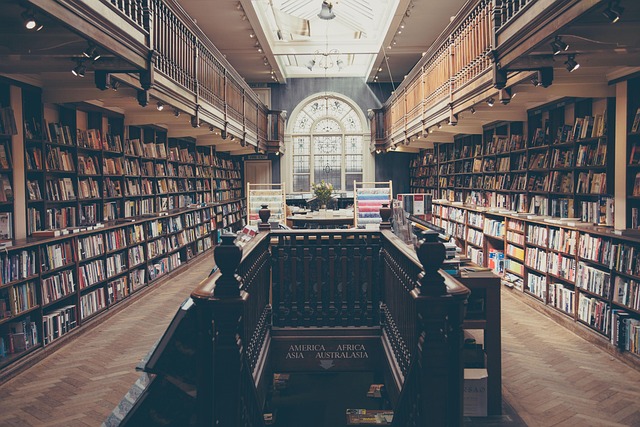By Tim Lambert
Early Libraries
A library is a room or a building containing a store of books for members to read. There have been libraries since Ancient Times. As early as 2,500 BC, there were libraries in Ancient Iraq with clay tablets as books. The Royal Library of Ashurbanipal was created about 600 BC in Iraq. It contained 30,000 clay tablets.
The Greeks and Romans also had libraries with books of papyrus. Probably the most famous library of the Ancient World was the Library of Alexandria in Egypt. Unfortunately, it gradually declined over the centuries. The Imperial Library of Constantinople was founded in the 4th century AD. Unfortunately, it was destroyed in 1204.
During the Middle Ages, many monasteries had libraries. In the late Middle Ages and afterward, many rich people had their own private libraries. There were also libraries in some towns. The Guildhall Library in London was founded in 1425 with money Richard Whittington left in his will. It had a collection of theological books for students. However, the Duke of Somerset ‘borrowed’ all the books in the mid-16th century and never returned them. Surprisingly, ordinary people sometimes owned small collections of books.
Reading was also a popular pastime in the 18th century, and the first novels were published at this time. Books were still expensive, but in many towns, you could pay to join a circulating library. In America, Benjamin Franklin founded the first lending library in Philadelphia in 1731. The Library of Congress was founded in 1800.
The British Museum Library was founded in 1753.

Modern Libraries
In Britain, in the early 19th century, mechanics institutes were founded in many towns to educate working men. Often, they had libraries.
In Britain, the Public Libraries Act 1850 allowed Boroughs to create public libraries. In Britain, the first free library opened in Manchester in September 1852. Other cities followed.
In America, the first free public library opened in Peterborough, New Hampshire, in 1833.
During the 19th century, school libraries became common.
The Industrialist and Philanthropist Andrew Carnegie (1835-1919) built more than 2,500 libraries in Britain, the USA, and Canada at his own expense. The first public library in Britain funded by Carnegie opened in Dunfermline, Scotland, in 1883.
In the early 21st Century, many libraries in Britain offered public access to the internet. The latest development is digital libraries. You can borrow eBooks and eAudiobooks from them without leaving your home. Today, public libraries are still an essential service to the community.